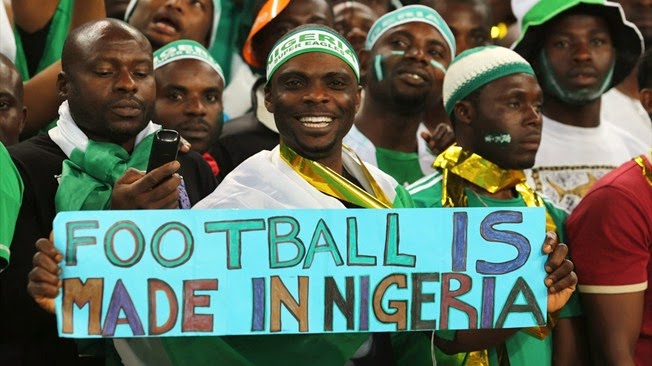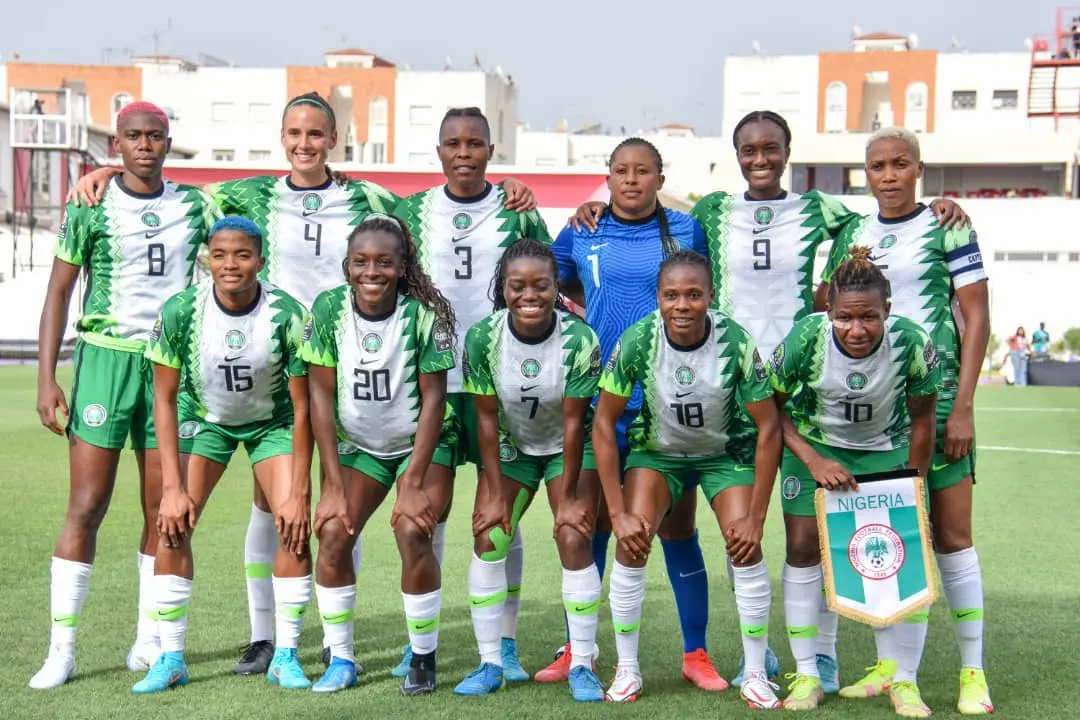“The Future of Football in Nigeria: A Nation’s Passion, Potential, and Path Forward
Related Articles The Future of Football in Nigeria: A Nation’s Passion, Potential, and Path Forward
The Future of Football in Nigeria: A Nation’s Passion, Potential, and Path Forward

Football is more than just a sport in Nigeria; it’s a unifying force, a source of national pride, and a reflection of the country’s vibrant culture. From the legendary exploits of the "Green Eagles" in the 1980s and 1990s to the more recent successes of the Super Eagles, football has consistently captured the hearts and minds of Nigerians. However, despite the nation’s unwavering passion for the game and the abundance of raw talent, Nigerian football has faced numerous challenges that have hindered its progress on the global stage. As we look to the future, it is crucial to examine the current state of Nigerian football, identify the key obstacles, and explore the potential pathways to unlock the nation’s full footballing potential.
The Current Landscape: A Mixed Bag of Promise and Problems
Nigeria possesses a rich footballing history, marked by iconic moments and legendary players. The nation has won the Africa Cup of Nations three times (1980, 1994, and 2013) and has participated in six FIFA World Cups. Nigerian players have graced the pitches of top European clubs, showcasing their talent and contributing to the global appeal of the sport.
However, beneath the surface of these achievements lies a complex web of issues that have plagued Nigerian football for decades. These challenges include:
- Corruption and Mismanagement: Corruption has been a persistent problem within the Nigerian Football Federation (NFF) and other footballing bodies. Mismanagement of funds, lack of transparency, and allegations of bribery have eroded public trust and hampered the development of the sport.
- Inadequate Infrastructure: Many football facilities in Nigeria are outdated and poorly maintained. This includes stadiums, training grounds, and academies. The lack of adequate infrastructure hinders the development of young players and limits the ability to host high-quality matches.
- Poor Grassroots Development: While Nigeria boasts a vast pool of raw talent, the grassroots development of football is often neglected. Many young players lack access to quality coaching, proper training facilities, and structured leagues.
- Lack of Professionalism: The Nigerian Professional Football League (NPFL) has struggled to attract fans and sponsors due to issues such as poor officiating, violence, and a lack of financial stability. Many clubs are unable to pay their players on time, leading to player unrest and a decline in the quality of play.
- Brain Drain: Many of Nigeria’s most talented young players are lured away to European clubs at a young age, often before they have had the chance to develop fully in their home country. While this can provide them with valuable opportunities, it also deprives the NPFL of its best players and weakens the national team.
Unlocking the Potential: A Roadmap for the Future
To realize its full potential, Nigerian football must address these challenges head-on and implement a comprehensive strategy for development. This strategy should focus on the following key areas:

Good Governance and Transparency:
- Restructuring the NFF: The NFF needs to be restructured to ensure transparency, accountability, and good governance. This includes implementing stricter financial controls, establishing independent oversight bodies, and promoting ethical conduct among officials.
- Fighting Corruption: The government and the NFF must work together to combat corruption within Nigerian football. This includes investigating allegations of corruption, prosecuting offenders, and implementing measures to prevent future wrongdoing.
- Promoting Transparency: The NFF should be more transparent in its dealings with the public, including publishing financial reports, disclosing contracts, and holding regular press conferences.
-
Infrastructure Development:
- Investing in Stadiums and Training Facilities: The government and private investors should invest in the construction and renovation of stadiums and training facilities across the country. This includes providing modern amenities, such as artificial turf, floodlights, and medical facilities.
- Developing Football Academies: More football academies should be established to provide young players with access to quality coaching, education, and healthcare. These academies should be staffed by qualified coaches and equipped with modern training facilities.
- Improving Transportation and Logistics: The government should improve transportation and logistics infrastructure to make it easier for teams and fans to travel to matches. This includes improving roads, airports, and public transportation systems.
-
Grassroots Development:
- Establishing Youth Leagues: Youth leagues should be established at the local, regional, and national levels to provide young players with regular opportunities to compete and develop their skills.
- Training Coaches and Referees: More coaches and referees should be trained to improve the quality of coaching and officiating at the grassroots level. This includes providing them with access to training courses, workshops, and mentorship programs.
- Providing Equipment and Resources: Young players should be provided with access to equipment and resources, such as balls, uniforms, and training aids. This can be achieved through donations, sponsorships, and government funding.
-
Professionalizing the NPFL:
- Improving Financial Stability: The NPFL needs to improve its financial stability to attract sponsors and pay players on time. This can be achieved through better marketing, improved ticketing systems, and increased government funding.
- Enhancing Security: Security measures should be enhanced at NPFL matches to prevent violence and ensure the safety of players and fans. This includes deploying more security personnel, installing CCTV cameras, and implementing stricter entry controls.
- Improving Officiating: The quality of officiating in the NPFL needs to be improved to ensure fair play and prevent controversial decisions. This can be achieved through better training, stricter evaluation, and the use of technology, such as video assistant referees (VAR).
- Marketing and Promotion: The NPFL needs to be better marketed and promoted to attract fans and sponsors. This includes using social media, television, and other media channels to promote the league and its teams.
-
Curbing Brain Drain:
- Improving the NPFL: By improving the NPFL, Nigeria can create a more attractive environment for young players to develop and showcase their talents. This will reduce the incentive for them to move to Europe at a young age.
- Establishing Partnerships with European Clubs: The NFF can establish partnerships with European clubs to provide young Nigerian players with opportunities to train and develop in Europe while still playing for Nigerian clubs.
- Offering Incentives: The government and the NFF can offer incentives to young players to stay in Nigeria, such as scholarships, training grants, and opportunities to represent the national team.
-
Leveraging Technology and Innovation:
- Data Analytics: Utilizing data analytics to identify talented players, track performance metrics, and optimize training programs.
- E-learning Platforms: Developing online platforms for coach education and player development, making quality training accessible to a wider audience.
- Fan Engagement: Using social media and digital platforms to engage with fans, promote the NPFL, and build a stronger footballing community.
The Role of Stakeholders:
The future of Nigerian football depends on the collective efforts of all stakeholders, including:
- The Government: The government has a crucial role to play in providing funding, infrastructure, and policy support for football development.
- The NFF: The NFF is responsible for overseeing the development of football in Nigeria, ensuring good governance, and promoting ethical conduct.
- Clubs: Clubs are responsible for developing players, providing them with opportunities to compete, and promoting the sport at the local level.
- Players: Players are the most important stakeholders in football. They must be disciplined, dedicated, and committed to improving their skills.
- Fans: Fans are the lifeblood of football. They provide the passion, support, and financial resources that are necessary for the sport to thrive.
- Sponsors: Sponsors provide financial support for football, enabling clubs and leagues to operate and develop.
- The Media: The media plays a crucial role in promoting football, informing the public, and holding stakeholders accountable.
Conclusion:
The future of Nigerian football is bright, but it requires a concerted effort from all stakeholders to address the challenges and unlock the nation’s full potential. By implementing a comprehensive strategy that focuses on good governance, infrastructure development, grassroots development, professionalizing the NPFL, curbing brain drain, and embracing technology, Nigeria can transform its football landscape and become a global force in the sport. With its unwavering passion for the game and its abundance of raw talent, Nigeria has the potential to become a footballing powerhouse. It is time for the nation to embrace this potential and build a future where Nigerian football can truly shine on the world stage. The journey will be long and arduous, but with dedication, commitment, and a shared vision, Nigeria can achieve its footballing dreams.

